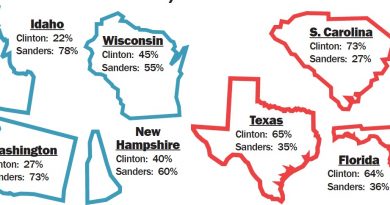Head of UWT Campus Safety and Security Speaks About Fighting Attacks
Rarely do we get a warning before tragedy strikes. We don’t hear the footsteps of evil.
On the night of Nov. 13th, in Paris, France, while soccer fans were cheering for their favorite teams and concert-goers were applauding an American rock band, none of them thought for even one second that a happy night was doomed to be hell.
130 people, including one U.S. citizen, were killed in a series of coordinated attacks. These attacks included explosions outside a football stadium, a hostage crisis at a theater, and several shootings in the streets of Paris. The Islamic State (IS), one of the largest militant extremist groups in the world, which is based in Syria and Iraq, claimed responsibility for the bloodshed.
144 school shootings have taken place in America since Sandy Hook in December 2012, according to Everytown for Gun Safety, an advocacy group that calls for stricter gun laws. The terrorist attacks in Paris and all of those shootings remind us of how vulnerable we are, anytime, anywhere. In one second, a shooter can shatter our sense of peace.
For those of us who spend most of our time on the UWT campus, along with more than 4,629 students, and which is located in the heart of a busy city, we have every reason to learn what we should do in situations like these. Although there has never been any significant violence on our campus—thanks to the remarkable work of Susan B. Wagshul-Golden, the Director of the UWT Campus Safety and Security and her fellow team members—students should still be prepared just in case.
In life, there are no absolutes. As Wagshul-Golden, whose team is “staffed with two campus security sergeants and eleven campus security officers,” tells The Ledger: “No one wants to think about a terrorist attack, but it is important to be prepared just in case such an event happens.”
By looking at previous terrorist attacks, including those that occurred in Paris, we now know that people can easily mistake explosions for fireworks and mistake screaming for cheers. Even though we may never know when an attack will take place, there are things we can do to protect ourselves in the event that it happens.
One aspect of public safety that people often overlook is communication.
If there were ever a violent situation on campus, “Employees and students would be alerted using the mass notification system called UW Alert,” says Wagshul-Golden. She also assured that students would “still receive email alert messages for UW Tacoma” even if they don’t “sign up for the text messaging service.” This is why it is so important for students and faculty alike to check their UW email regularly.
Although Wagshul-Golden leads an excellent and experienced team that ensures our safety on campus, we need to understand that they may not always be able to reach us in time. This is why we need different tactics for different situations that may include shootings, explosions, or kidnappings.
“Stay where you are and secure the door,” says the director on responding to attacks caused by armed individuals. “Have someone watch the door as you get as many students out of the windows (ground floor) as calmly and quietly as possible.” For explosions, “evacuate immediately and call 911 from a safe location,” she says.
Of course, we also need to realize that predators are always on the hunt. We are constantly at risk, regardless of whether we are in the hallway, at the gym, or at an event in a large conference hall.
“If in the hallways, get inside a room and secure it,” says Wagshul-Golden. She also advises people not to hide in restrooms unless they absolutely have to. Restrooms offer little to no protection, and they often do not have an emergency exit.
As world tensions rise, we can no longer afford to treat safety like a concern, we must make it a priority. As Wagshul-Golden reminds us, “safety is everyone’s responsibility and everyone has a part in it.”





